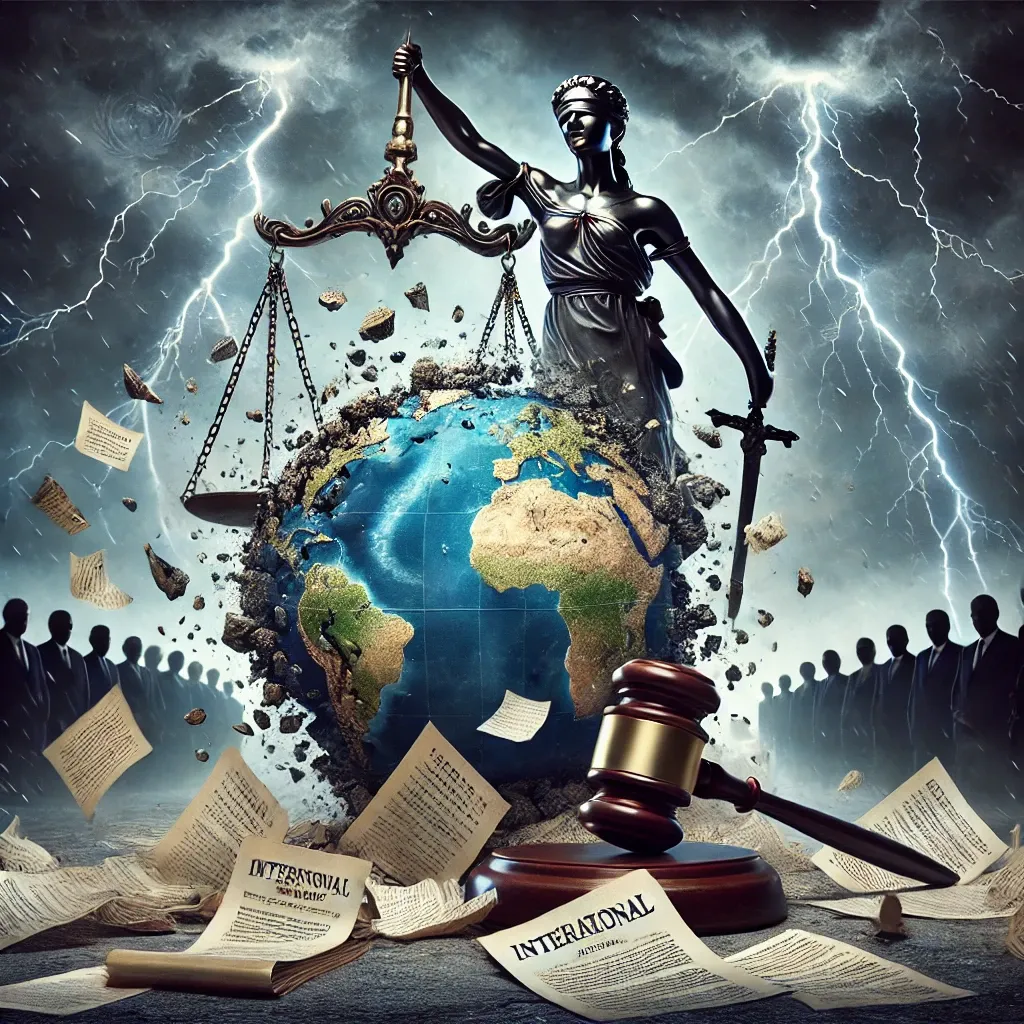International Law isn't a thing.

The recent visit to the White House by the Ukrainian president has unleashed thousands of self-proclaimed experts on International Relations and International Law on X. Suddenly, everyone is throwing around terms like "war crimes" and "illegal invasions" as if those words have any real weight outside of rhetorical convenience.
So, without appealing to argumentum ab auctoritate—or argument from authority—I’ll simply state that my first undergraduate degree was in this field. Before we can even discuss the non-thing that is "International Law," we have to examine the concept of sovereignty.
There are two definitions of sovereignty that actually matter in the context of international affairs. The first: supreme power, especially over a body politic. The second: freedom from external control. Both highlight the true nature of a country’s sovereignty.
For a law to be binding, it requires a supreme authority to enforce it. That’s what makes law law—the power to compel compliance. In the United States, state governments have greater authority than county governments, but at the national level, Article VI’s Supremacy Clause makes it clear: laws made under the Constitution are the supreme law of the land. That is real sovereignty—a defined hierarchy with a clear enforcement mechanism.
Now, contrast that with the supposed "laws" of the international order.
International Relations theories revolve around who actually holds power in the world. Most of them acknowledge that nation-states are the highest level of sovereignty. Even liberalism and constructivism admit sovereignty exists—they just try to dilute it by claiming that institutions, norms, or dominant states have a greater role in dictating global affairs. But just because the big dog dictates policy doesn’t make it legitimate.
The problem? They offer no real alternative. They dance around sovereignty’s importance while failing to define what actually replaces it. "International norms" only exist when enforced by power. Institutions collapse the second a major state ignores them.
This leaves Realism, and the many variations thereof, as the only IR framework that isn’t built on fantasy. The world exists in anarchy. There is no authority above the nation-state. And that’s not a perspective—it’s a fact. Treaties, accords, and "international laws" are nothing more than voluntary agreements. They are followed only as long as they benefit those involved. The second they don’t, they’re discarded.
International law is not law—it is the will of powerful states when they choose to exercise it. That’s why every so-called "global order" crumbles the moment a dominant power changes direction. And that’s why no one knows how to react when the U.S. experiences a fundamental shift in foreign policy—because, for the first time in a long time, the current administration’s priorities lie within its own borders.